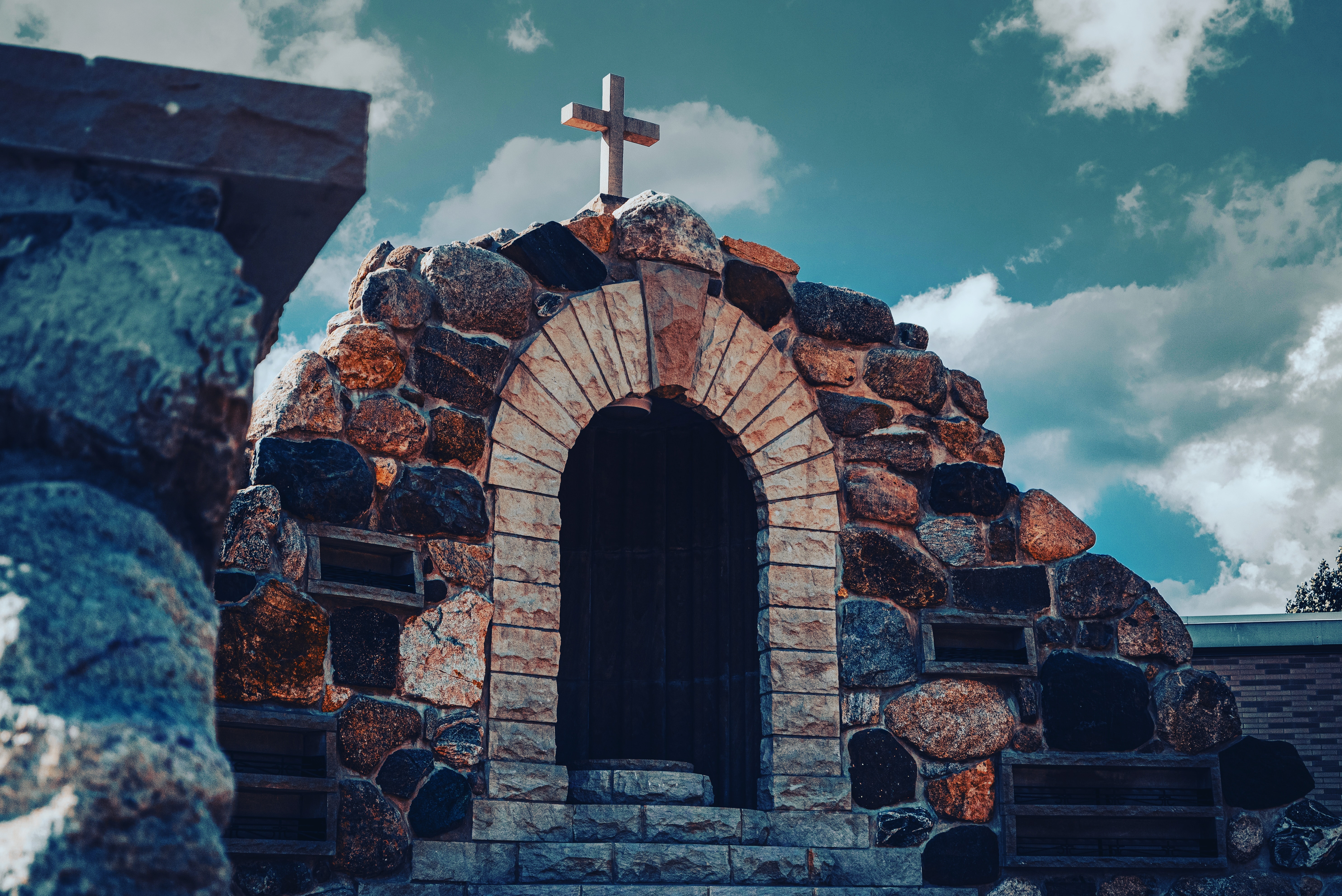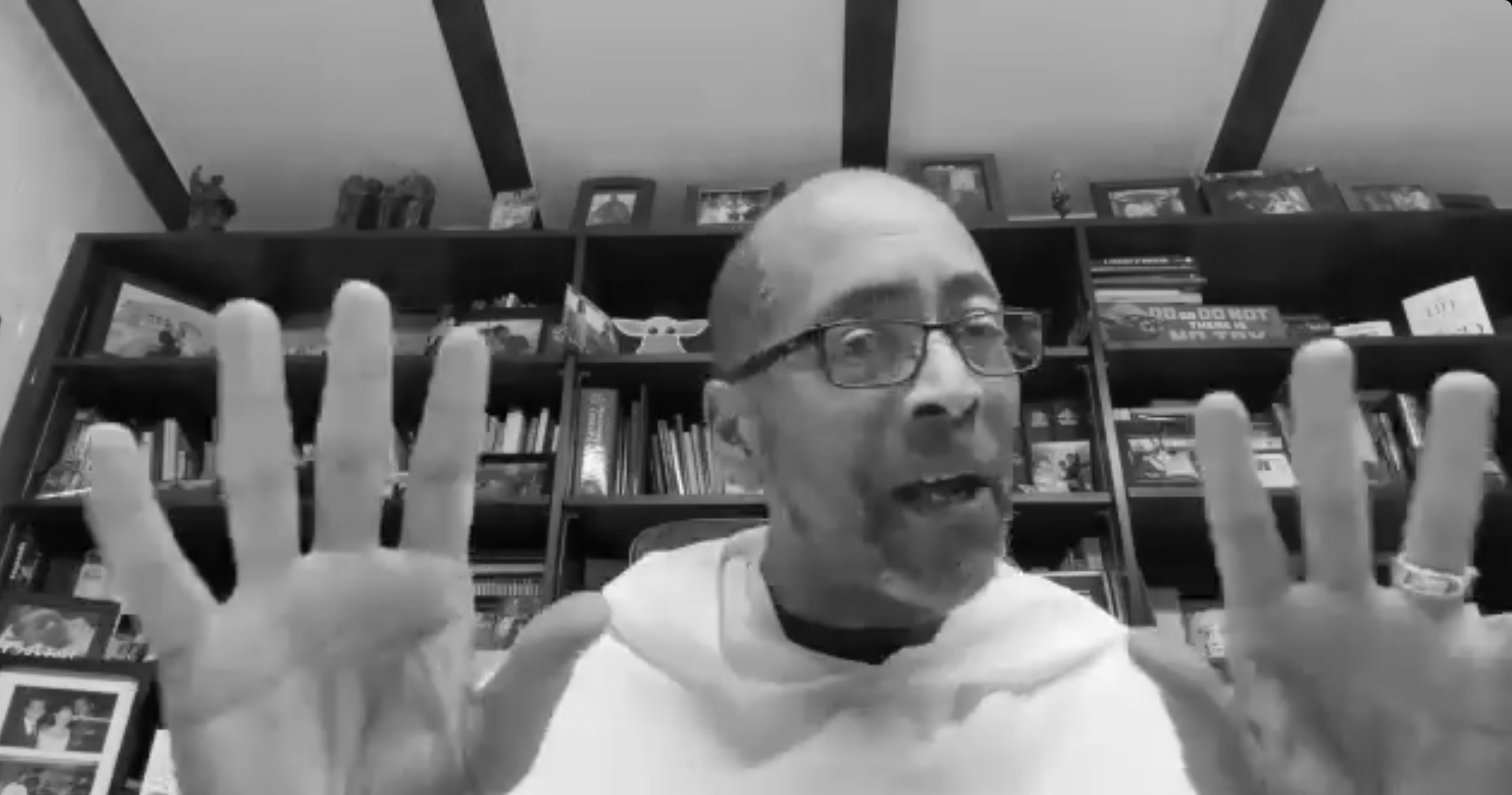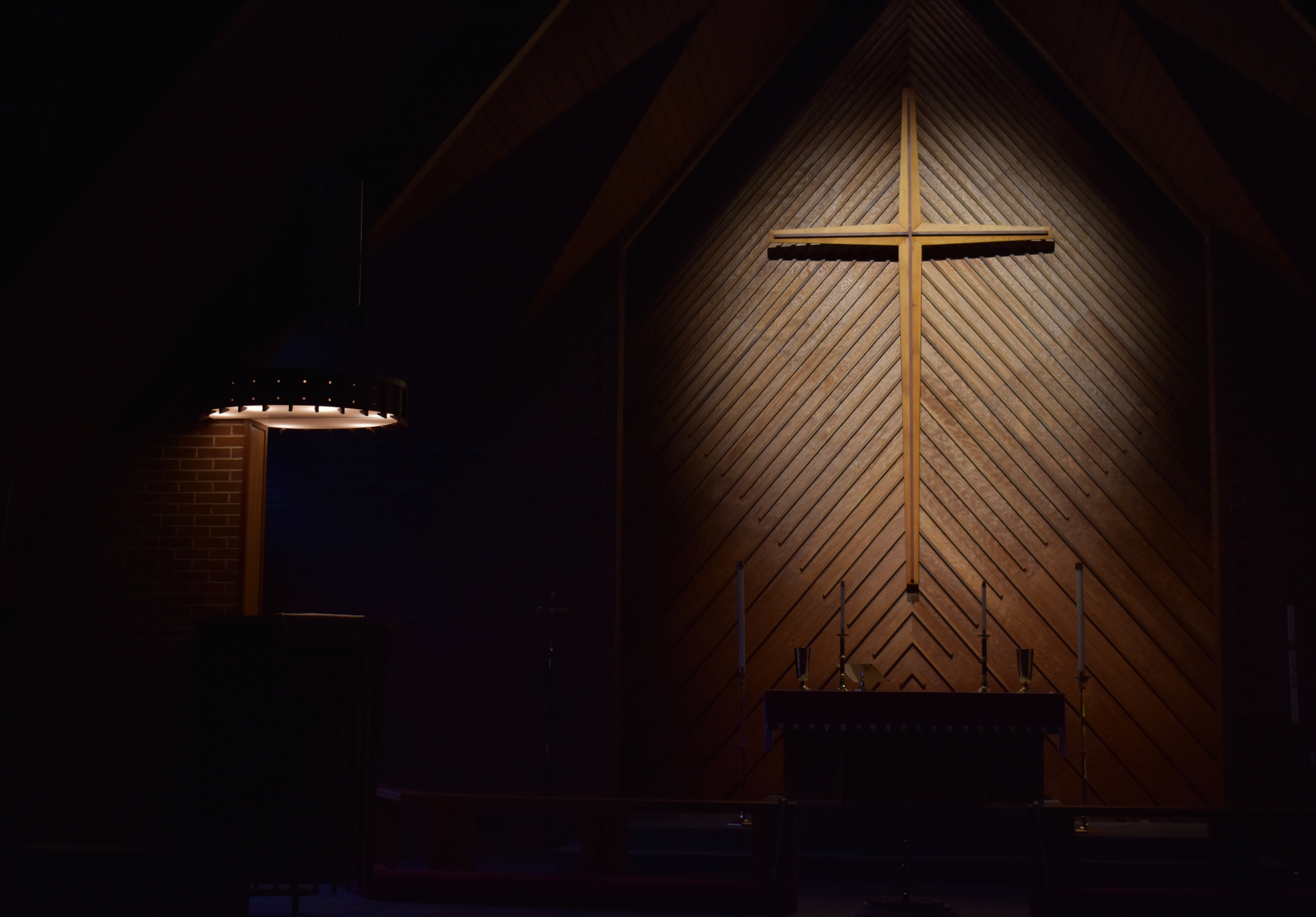"any sincere attempt to reach God is going to be successful, even if we don't necessarily feel it. Even if it doesn't feel like success, we can rest assured through our faith that we've reached God"
Fr. Mark Thibodeaux, SJ has been a spiritual director for many years and he shares his work on bringing others closer to Jesus Christ. What is spiritual direction? Where can you find a spiritual director? Listen as Fr. Thibodeaux explains what it entails, what it's not and how you can also get spiritual direction.
The following are edited excerpts and outline of the conversation from this podcast interview.
[00:00:11] How do you define spiritual direction?
I would say that spiritual direction is accompanying someone on their path to getting closer to God, or to put it another way to accompany, maybe coach a little bit, but mostly just listen to the stories of how one is in relationship with God. That’s what I would say spiritual direction is about. The purpose of it is not instruction, although instruction is a part of it.
The purpose, the whole goal of spiritual direction is to help a person grow closer to God through their mostly intimate relationship with God. So through their prayer life but also with their other relationship as well, you know, so their relationship with their family and friends, their relationship with their church, their relationship with Church teaching and liturgy and that sort of thing. But the main thing is this firm belief that God desires an intimate relationship with each and every one of us, and a director can help the person in their intimate relationship with God.
Obviously, a relationship with God is a little different than a relationship with any other person because God doesn’t at this point have flesh, have fingers and toes and a mouth and ears. God is not in a fleshy body since about 33 AD or so, and so it takes a little bit more work, and it’s a little trickier to be in this intimate relationship with God, as opposed to a relationship with a human person, with a human body. And so that’s where a director could come in. A director can help a directee, the person going to the director, can help the directee to discern “where is God in their life?”, “what is God calling them to?”, “how might they respond to God’s call?”, and also “where are the areas that God is not as present?” or that they are not as close to God, and “what can they do about that?”
So that’s a long answer to your question, what is spiritual direction? But that’s a sort of overview of how I view spiritual direction.
[00:02:47] And how would that relationship begin? Both from your end, how did you land being a spiritual director or anyone else would become a spiritual director? And how would someone begin to ask for spiritual direction?
Let me answer the second part first. If someone is interested in spiritual direction, at least in the Catholic faith, you would want to sort of go and research where could you find a spiritual director. Probably the easiest thing would be for the person to go to their pastor or priest or religious sister and maybe ask if they could be the director, but maybe not. Maybe simply ask, can you help me find one? Because a lot of priests and nuns do not feel called to this ministry and may be skilled in this ministry and so they themselves might not say “yes” but they can, probably every one of them could probably help you find someone.
In a lot of dioceses there are some sort of spirituality center, either run by religious like Franciscans or Dominicans or Jesuits or are run by the diocese itself. So, for example, in New Orleans, the Archdiocese of New Orleans, there is the New Orleans Archdiocesan Spirituality Center and it’s run, obviously, by the Archdiocese, and they have a wonderful, wonderful program. They have probably, I don’t know, 20, 30 trained spiritual directors ready to get to work. And so anyone in the Archdiocese of New Orleans could simply call that place and make an appointment and they will lead you through the process. Most dioceses have some place like that and there’s a good chance that whoever the priest or the sister or the religious brother that you know will probably know where to find them. So that’s the answer to your second question.
The answer to your first question, how did I get involved? Well, all religious I think are expected, certainly, I’m a Jesuit priest, so Jesuits are all expected to have a spiritual director and to meet regularly with a spiritual director. And so when I first started in the Jesuits I was assigned a spiritual director as a Jesuit novice and then at some point you go out and seek your own spiritual director. But our Jesuit superiors still ask. So when my major superior comes to visit me, it’s not unusual for him to ask me, Mark, who’s your director? How’s your relationship going with your spiritual director?
And I think that’s probably true for all priests and religious. I actually began spiritual direction even earlier than that, began to go to spiritual direction because in high school my own parish priest was a trained director and he offered to direct me. And I didn’t even know what it was. He said, “would you like me to be your spiritual director?” And I said, “well, what is that? And I don’t know what that means” but I said “yes” to anything he ever asked me so I was delighted to do it. And we began spiritual direction in my junior year of high school and so for two years I did spiritual direction with this pastor and then I think it’s really because of that that I was able to join the Jesuits and begin with them.
[00:06:30] How do these meetings look like? Is it a weekly meeting, in person, in the church?
Yeah. So usually, kind of the default, the default switch is to meet one-on-one with your spiritual director, very often in the spiritual director’s office. Usually it’s once a month. It could be more, it could be less, but sort of the standard is once a month. And you would go to see the director and the conversation would be all about your relationship with God. That would be the number one thing and then sort of in a more general way, how’s it going.
Sometimes it’s helpful to make the distinction between spiritual direction, pastoral counseling, and therapy because those are three different things that are similar but not quite the same thing. So therapy is not necessarily religious at all, it’s not coming from a faith perspective. That’s number one. And number two, therapy centers around some problem. Usually if you’re going to see a therapist it’s because there’s some psychological or emotional issue in your life that you’re trying to work through. So it’s kind of solving a problem. And again, it’s not necessarily from a religious context although you could see a Christian therapist or a Catholic therapist.
Pastoral counseling is a little bit like therapy in that a lot of times someone will come to pastoral counseling because they have some pastoral issue that they want to discuss with a religious person. And that would be more of a one-o -one thing or a very short -term thing. And again, you’re working on a particular issue, a particular problem or issue. So that’s what therapy and pastoral counseling is.
Spiritual direction, you’re not so much trying to solve a problem. It’s an ongoing relationship that you have with the director, which is all about another ongoing relationship, which is your ongoing relationship with your God. And so when someone would come to see me for spiritual direction I would ask the question, “how’s it going?”…but then pretty quickly I would start to say, “what are the big things in your life? What are the big challenges in your life? What are the big highlights of your life? The ups and downs of your life right now? What’s the best thing that happened in the past month? What’s the most challenging thing that happened in the last month?”
And then pretty quickly I would move to where is God in this? So if you were to talk about a challenging situation, let’s say you would talk about an issue with a relationship problem that you have with, let’s say your sister, your brother, your mom, your dad, that you’re having an ongoing argument with them and it’s upset you. Well, then we can talk about it for a while and if I were doing therapy, then we would just talk about that problem. But for a spiritual director, pretty quickly I would start to ask, “and where is God in this? Where is God in this relationship? Do you sense a sense of faith, hope, and love that’s coming from God? What do you think God is calling you to do in relationship with your brother, your sister, your mother, your father?”
That sort of thing. So we’re constantly going back to where is God? Where is God in this? And notice I’m saying God, it could be the Father, the Son, or the Holy Spirit. And that’s one thing, that would be one question that a director might ask, “who are you speaking to right now?” And it really, whichever person of the Trinity you’re feeling close to at the moment is perfectly fine, but that would be one thing we can talk about as well. So those are some of the things that you would discuss.
But more basically, yeah, it’s about a once a month meeting, about probably 40 to 60 minutes. If you’re going through a difficult time you might meet more than once a month. If you are someone who’s been at this for a long time and you’re in a very stable place in your life and in your prayer life, your spiritual life, then it might be less than once a month. Might be once every two months or every three months.
[00:11:03] You are a novice director and you’re a spiritual director, so you’ve been directing people towards God. What have you learned in all these years about yourself as directing people but at the same time, what a common thing you’ve learned about all these mentees?
Well, I have. It’s true. I’ve had a lot of directees over the years and as you said, for 10 years, I was a novice director. And so I worked with novices. I was a spiritual director for all of these novices all those years. So yes, I’ve been doing this a long, long time. I would say, what’s common? Well, at the risk of stating the obvious, anybody who’s going to spiritual direction is very attracted to and desirous of a relationship with God. And the reason why, it should be obvious, and yet we need to say it out loud anyway, because it’s a beautiful thing. I mean, I do believe that all hearts are striving towards God.
And I would argue that even the heart of an atheist, the heart of an agnostic, the heart of someone who has sort of rejected the Church right now, you scratch just beneath the surface and you kind of sense this great desire to reach out towards what’s sometimes called, “I know not what.” And what that means is, for an atheist, they don’t call it God. They don’t call the person God but they’re reaching towards the transcendent. Everybody seems to, every soul, every heart seems to be reaching towards the transcendent, reaching towards something that’s bigger than themselves. And that is a beautiful, beautiful thing.
You know, one thing you said, what’s a common denominator? One thing, I’m sorry to say that I’ve noticed is that a lot of people are sort of, tend to be down on themselves in terms of their relationship with God. A lot of people sort of see themselves as somehow inadequate or constantly failing and that perhaps God is either angry or disappointed in them. That’s a very common, extremely common thing. Even the most religious people, the holiest people that I know when I see them in spiritual direction, a lot of times they’ll talk about, you know, “oh, I’m failing miserably in my relationship with God.”
And from my perspective as the director it doesn’t seem that way to me at all. It seems to me that they’re doing beautifully and wonderfully. And I think people, I would argue that it’s a sort of work of the, what St.Ignatius would call, work of the Evil Spirit, work of the False One, the Devil to sort of get us discouraged and get us thinking that somehow we’re inadequate or that we’re not doing it right.
A lot of people, a lot of people, the vast majority, they have this strong conviction that they’re not praying correctly. And a lot of times my work, especially in the beginning, is just to assure them that it’s going just fine. Their prayer is going just fine. I have an expression that I use in my book sometimes, I have several published books, and one of my books, I have this expression that says, “to reach for God is to reach God. To reach for God is to reach God.” And I really firmly believe that because as much as we desire God, God desires us all the more. And so God’s going to make it work. And so any attempt, any sincere attempt to reach God is going to be successful, even if we don’t necessarily feel it. Even if it doesn’t feel like success, we can rest assured through our faith that we’ve reached God.
[00:15:00] How have you seen yourself grow in your approach to people’s issues? What are other things you’ve seen the common things throughout folks?
I would say the ways I’ve grown as a spiritual director, I’ve really come to believe strongly that the number one thing people need more than anything else is a good listener. People seem to have that need more than anything. And people feel like they’re not alone when someone else listens well to their story and when they get a sense that the other person understands. So my number one goal, far more important than anything else, I would almost say everything else all together, added together, does not equal this number one goal.
And the number one goal is to be a good listener, to listen well to the person’s story. And what I try to do is listen to the story, and by story I just mean like their account of how their life is going, especially their spiritual life with God. Just listen and not interrupt. I’ve really kind of taken to sit very quietly while people talk and to wait until they finish talking, not interrupt at all. When they are completely finishing whatever they want to say, then I try to ask more leading questions.
I’m listening for some important moment, like if they speak for a whole five minutes, somewhere in there in those five minutes, they probably would have said one thing that I can tell touched them deeply. So I’ll go back to that moment. I’ll say, “let’s go back to you said this thing a little earlier. Tell me more about that.” And so I’m constantly trying to tease out more of the story, particularly the part of the story that seems to be most important to them. So that would be the number one goal.
The number two goal might be affirmation. And the reason why that’s the number two goal is because of what I said earlier, that people tend to be sort of so critical of themselves that it actually holds them back. And so if they feel a little bit better about themselves, they’re going to feel more confident to move forward in their spiritual life.
And then thirdly, I want to go in another direction for a second. And this is a huge topic in the Ignatian world. So I’m a Jesuit, and the Jesuits are founded by St. Ignatius Loyola. And we call the pathway that Ignatius Loyola put forward, we call that the Ignatian way, or Ignatian spirituality. So the Ignatian perspective on direction would be something like this, that we all go through different phases of our life. And the two major phases that we go in and out of are spiritual consolation and spiritual desolation.
Spiritual consolation is when we are sort of in sync with God, that we feel like God is moving this way, and we are right there, right with God. That’s spiritual consolation, when we are growing towards faith, hope, and love, when we feel like God is very close to us, and so forth. Spiritual desolation is when we are out of sync with God, when we feel like we’re not connected with him, we’re upset, when we are not moving towards faith, hope, and love, when we’re confused, when we’re frightened, those sorts of things.
So I’ve really over years have kind of learned as a spiritual director to do what Jesuits call Ignatian Discernment of Spirit. So the person in front of me will be telling their story of what’s going on in the month, and I’m listening for what place are they on the spiritual life? Are they in consolation or desolation? And I will respond accordingly. If they’re in consolation that means that they’re very much in sync with God already. So all I have to do is listen and sort of affirm them for the most part and help them to relish that. If they’re in desolation then I try to help them try to get at what is the problem, where is the problem, and I affirm them to stay strong and faithful through this stormy part of their life but also see if there’s anything we can do to make it better.
[00:19:51] How was that journey for you becoming a great listener?
Well, I’m glad you asked that because I actually believe that most people are not that good at listening. Most people are not really great listeners. Most of the time when two people are talking, and psychologists will affirm this, in fact I learned this first from psychology not from theology, psychologists will tell you when two people are talking, when one person is talking, the other person already starts to formulate their response before the person is finished talking.
Like if you and I are talking, you start to say something, within a sentence or two of you saying something, I’m already putting together my response. And because of that, because my mind is focused on my response to the first sentence or two, I’m not really listening well to your third sentence, your fourth sentence, your fifth sentence. And so what you have to do is don’t think about your response at all. Just listen. Just try to understand. And don’t try to think about what you will say afterwards, but just try to understand.
You are an explorer when you are a spiritual director. You’re exploring. You’re like a scientist observing. You’re looking under the microscope and you’re just trying to absorb and take in the information. And so you try to put aside your own agenda and your own desire to say something clever after they finish speaking.
And I think a lot of that is, directors when they start out, and I would say this is certainly true for me, when I started out I wanted to be really good at it and I wanted to succeed. And for good reasons. I mean, for bad reasons, too, I suppose, just so for my own self pride. But also for good reasons, I wanted to be helpful to the person. But that desire to succeed led to, I think, a sort of lack of confidence in myself. And so that lack of confidence led me to have to sort of constantly try to think of what’s a good thing to say, what’s a good response to say to you.
And so my nervousness would lead me to sort of formulate my next response before you even finish. Now that I’ve done this for years and years, I don’t think I’m perfect at it, but I’m at peace with who I am now. I’m not nervous about it anymore. So I can just relax and just really hear the whole story. So I think that’s the most important thing.
And another thing and this again is a trick we learn from psychologists more than from the spiritual realm: so I listen to everything that they have to say and then I try to repeat back what they just said. Instead of putting my own spin on it or anything, I say, “Okay, I think what I heard you say was this.” And then I say it in my own words but I try to say exactly what they said to me back to them in my own words. And then I say, “is that correct?” And then I let them correct me. And I keep trying, I keep articulating what they said until they say to me, “okay, that’s it, you’ve got it.”
And the reason why that whole thing is important is because a big part of, the big goal in spiritual direction is to let the other person know that they’re not alone. That someone else understands where they are. And so that’s a wonderful process that we learned from psychologists on the art of listening. And that’s kind of how I learned the skill.
[00:23:30] I do want to end by asking you the same questions I ask all my guests. One of them being, what is one scripture verse or part of the Bible that really resonates with you and why?
Okay, so I think I would answer the way a lot of people would answer, I would say the Prodigal Son is one of my all-time favorite scripture passages and the reason why is because the portrayal of God the Father is unbelievably beautiful. This father who is absurdly loving and unconditionally loving and always ready to embrace the wayward one, the one coming home. So that would be my answer.
I want to answer the spiritual director too though. A favorite passage of mine as a spiritual director is the passage, the gospel passage where Jesus says to Zacchaeus who’s in the tree, he’s the tax collector who’s a very, presumably a very sinful man who is kind of a crooked businessman, you could say, Jesus says to Zacchaeus in the tree, “come down, I want to have supper with you tonight.” And Jesus goes to Zacchaeus’ house, has supper with him and Zacchaeus in the end converts and becomes closer to God.
Why I think that’s so important for a spiritual director, that passage is because Jesus doesn’t actually preach. He doesn’t preach. He doesn’t give instructions to Zacchaeus. He simply accompanies Zacchaeus. He just befriends him and that accompaniment is what led Zacchaeus to get closer to God. And I think that’s a big part of what we do as a director.
[00:25:07] The following question is, what is one word or couple of words that you would like God to use in describing you?
I would say I would love for God to think of me as a good listener and ambassador for him and sort of the presence of God. As we said earlier, Jesus is not in flesh right now except through me. And Teresa of Avila says “yours are Christ’s only hands. You’re a Christ’s only feet. Your voice is Christ’s only voice in the world right now.” So I would love for God to think of me that way, that I am God’s voice, God’s hands, God’s feet.
[00:25:48] And is there anything we can help promote or you would like others to support?
Well, you know, I’m the pastor of a parish called Holy Name of Jesus Church and it’s in New Orleans. And we have a very, very active YouTube channel. So if you were to do a search for Holy Name of Jesus Church, New Orleans, you would find our YouTube channel pretty quick. And almost every single thing that we do inside the church we live stream it. And we have over 4,000 subscribers. And there are also online retreats and online workshops that you can go and watch. So everyone is most welcome to go and watch there and you can join our online community at Holy Name of Jesus Church.
Also, I’m a Jesuit, so anyone who’s interested in supporting the Jesuits could go and, again, if you simply Google “Jesuits” you can get to us right away. And of course, if you are a young man who’s interested in becoming a priest or brother then we would love to hear from you.





